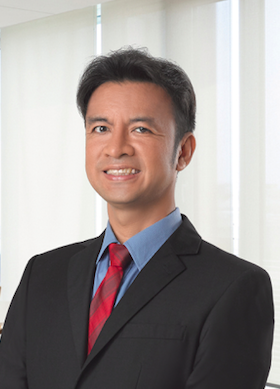The threat of being prosecuted for libel stifles the dynamism of the conversations that take place in cyberspace.
Thus declared Supreme Court Senior Associate Justice Marvic Leonen in the case of Disini vs Secretary of Justice (G.R. No. 203335, February 18, 2014) in connection with the constitutionality of Republic Act No. 10175 or the Cybercrime Prevention Act of 2012, including the provisions on cyber libel.
Justice Leonen’s view on cyber libel was echoed as one of the major threat to media practitioners during the recent consecutive media conferences that gathered journalists, media workers, educators, human rights, and press freedom advocates.
The Philippine Center for Investigative Journalism (PCIJ) held the Third Investigative Journalism Conference from April 30 to May 2, 2024 that tackled the importance of investigative journalism and watchdog journalism amid the increasingly challenging political and information environments.
READ MORE:
Flowers for Lolas: Filipina comfort women say No To War
Flowers for Lolas: Remembering the 1945 Rape of Manila
In commemorating World Press Freedom Day, the First Philippine Media Safety Summit was held on May 3, 2024 that aimed to facilitate a review and assessment of the state of journalism and freedom of expression in the country.
Libel is the public and malicious imputation of a crime, of a vice or defect, real or imaginary, or any act, omission, condition, status, or circumstance tending to cause the dishonor, discredit, or contempt of a natural person or juridical person, or to blacken the memory of one who is dead.
The traditional concept of libel involves print media, radio and television broadcasts.
R.A. No. 10175 was signed into law by President Benigno Aquino III on September 12, 2012 wherein “cyber libel” is among the actions criminalized.
The application of the law penalizing libel has been extended to cyberspace and electronic platforms, including social media, websites, blogs, forums, and other digital channels.
The following are the elements of cyber libel, based on Section 4(c)(4) of R.A. 10175, in relation to Articles 353 and 355 of the Revised Penal Code:
a. There must be an imputation of a crime, or of a vice or defect, real or imaginary, or any act, omission, condition, status, or circumstance.
b. It must be made publicly, which requires that at least one other person must have seen the libelous post, in addition to the author and the person defamed or alluded to in the post.
c. It must be malicious, which means that the author of the libelous post made such post with knowledge that it was false, or with reckless disregard as to the truth or falsity thereof. (Yunchengco vs. Manila Chronicle, G.R. No. 184315, 25 November 2009.)
d. It must be directed at a natural or juridical person, or one who is dead, which requires that the post must identify the person defamed, or at the very least, the person defamed is identifiable by a third person.
e. It must tend to cause the dishonor, discredit or contempt of the person defamed.
f. The imputation was done through the use of a computer system or any other similar means which may be devised in the future. (Sec. 4(c)(4) of R.A. 10175)
Justice Leonen stressed in the Disini case that legitimate dissent will be endangered by cyber libel.
“Libel with its broad bright lines is an anachronistic tool that may have had its uses in older societies: a monkey wrench that will steal inspiration from the democratic mob,” Leonen said. “The Constitution protects expression. It affirms dissent. The Constitution also insists that we will cease to become a democratic society when we diminish our tolerance for the raw and dramatically delivered idea, the uncouth defamatory remark, and the occasional lascivious representations of ourselves”.
READ MORE:
Songkran water festival as a celebration of life
Justice Leonen was my professor at the University of the Philippines College of Law.
Carlos Conde of Human Rights Watch said that the cyber-libel law has been used several times against journalists, columnists, critics of the government, and ordinary social media users
“Criminal libel law has no place in a democratic country and should be repealed,” says Irene Khan, UN Special Rapporteur on the Promotion and Protection of the Right to Freedom of Opinion and of Expression.
The Supreme Court allowed Khan to appear as amicus curiae (friend of the court) or chosen expert in the cyber libel case appeal of Nobel Peace Prize laureate and Rappler CEO Maria Ressa.
“The law in the country fails to adequately protect the right to freedom of expression. The country’s Ant-Cybercrime Law raises serious concerns that it limits the ability of journalists to expose, document and address issues of important public interest, thereby violating the right to receive and impart information, ” Khan argued in her brief citing Article 19 of the International Covenant on Civil and Political Rights to which the Philippines is a member.
(Peyups is the moniker of the University of the Philippines. Atty. Dennis R. Gorecho heads the Seafarers’ Division of the Sapalo Velez Bundang Bulilan Law Offices. For comments, e-mail info@sapalovelez.com, or call 09175025808 or 09088665786.)
